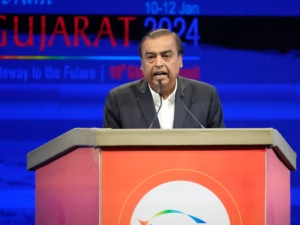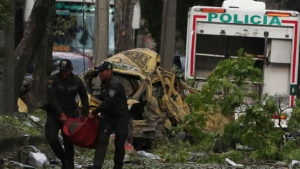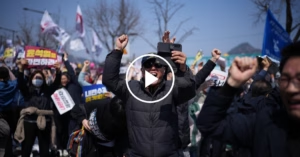Despite large-scale protests in Belgrade, where over 300,000 people took to the streets on March 15, the student demands for accountability regarding the canopy collapse remain at odds with the government’s strategic maneuvering.
“Both sides are currently playing a game of patience,” commented Bojan Klacar of CeSID, “awaiting a misstep from the other in what is essentially a game of nerves, while tưntatively reassessing the actions they need to take.”
Government Prepares New Strategy
Klacar anticipates that the government will conclude this stalemate with the installation of a new cabinet following the resignation of Prime Minister Milos Vucevic.

Upscales Event Announcement
“Now is the time to channel the collective strength of our people,” Vucic stated, “uniting wisdom and patriotism to shape the future we all desire.”
The movement will be officially launched in Belgrade from April 11-13 with festival-like events showcasing Serbia’s cultural and tourism potential. Citizens will also have the opportunity to officially join the movement and submit criticisms of government officials.
Crackdown on Dissidents
While the government portrays an image of optimism, it becomes more aggressive towards protesters.

The government has extended its crackdown from elementary and high school teachers who participated in strikes to professorial staff at universities. Prof. Vladimir Mihic spoke to DW about receiving only 23 dinars (around 20 cents) as part of his February salary after he backed the protests.
“The government fails to provoke bloodshed and impose a state of emergency, moving to openly repress any opposition,” Mihic asserts.
The general climate in Serbia remains strained, with incidents such as the attack on students in Novi Sad and the stabbing of Dean Natalija Jovanovic in Nis.

Jovanovic, who publicly supported the student action, has been a target for pro-government media labelling her as an “instigator of a gang.”
Pressure Builds for Transitional Government
Yet, the pressure from protesters continues, challenging appearances by governing party officials with protests and direct action.
Lisa Assemblies are now discussing the possibility of a transitional, expert government to tackle political and economic issues, an idea gaining traction after this March’s significant demonstration in Belgrade.
The united opposition and “Proglas” initiative have also proposed a similar composition.

Despite questions over its effectiveness, this collective call for urgent political clarification continues.
Are the Government’s Days Numbered?
Klacar is uncertain whether the government will fully address the student’s demands, anticipating only indirect concessions to pacify the situation. Meanwhile, Professor Mihic believes the ruling party is in its last throes due to its increasing repressiveness.
Cycling to Strasbourg
In a unique action aimed at seeking international allies, a group of students embarked on a cycling journey to Strasbourg to present demands at the Council of Europe. The 1,300-kilometer ride, passing through various EU states, could raise awareness of Serbia’s political crisis on Europe’s stage.
Klacar notes, however, that while this gesture could undermine the government’s international legitimacy, it is unlikely to result in drastic actions from the EU.
Prospects for a clear political alternative in Serbia, Klacar points out, remain distant.
This content was edited by Aingeal Flanagan.









